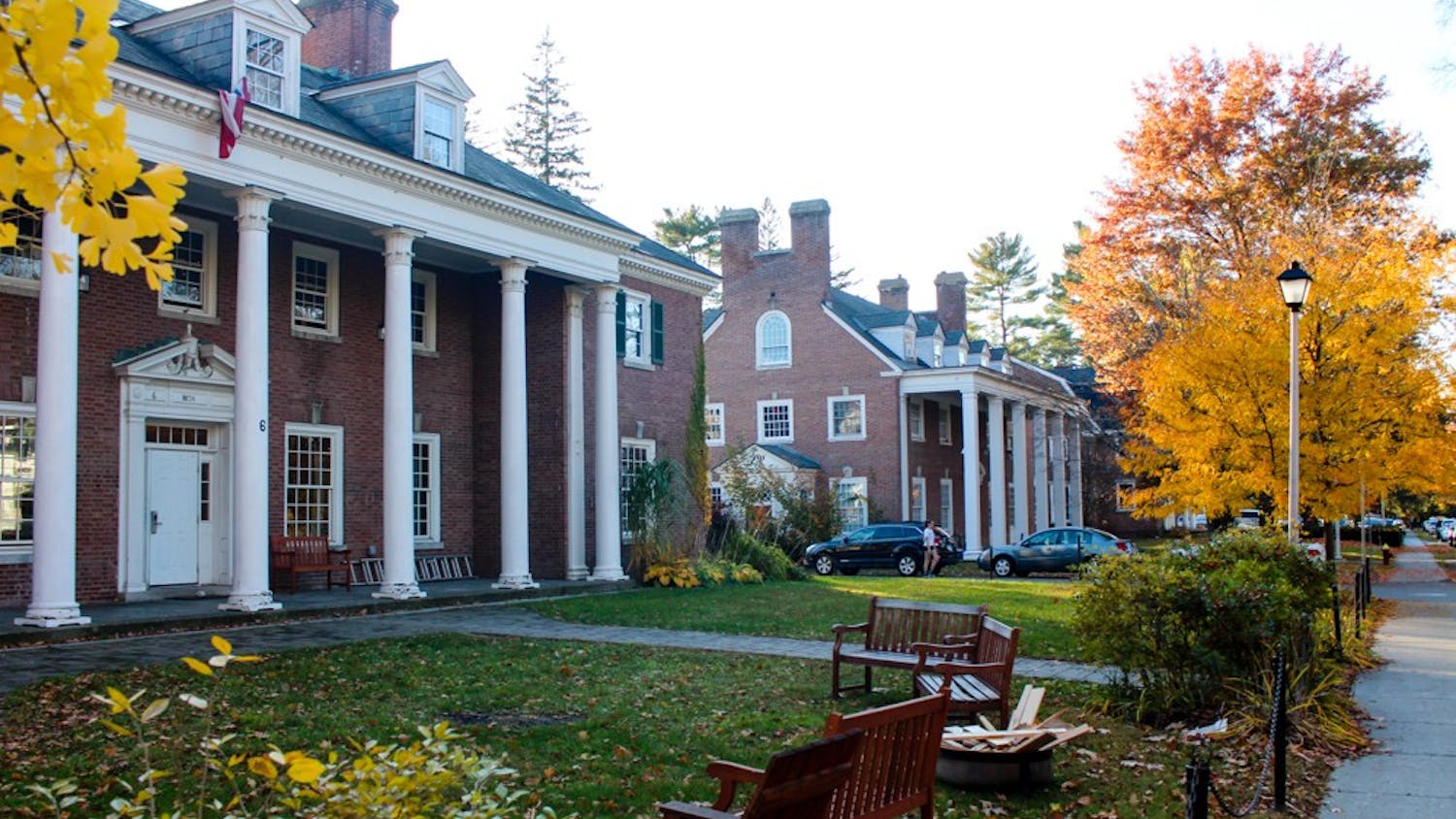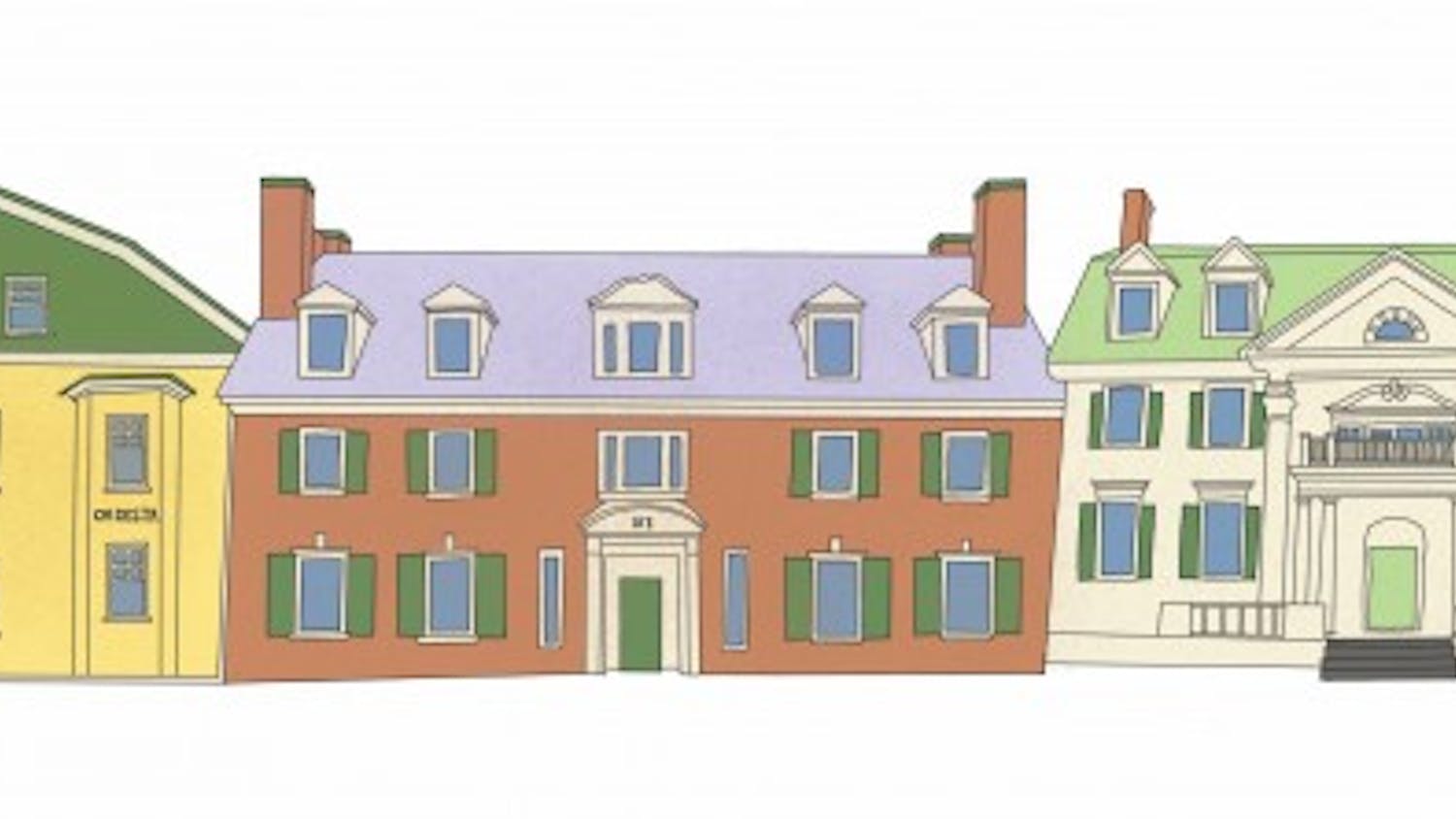Residents of at least five sorority houses and one fraternity house have experienced a range of internet problems since the beginning of the term, causing some students to be unable to load prerecorded lectures, attend meetings or even connect to synchronous Zoom classes.
“The issues were definitely apparent pretty immediately in terms of Wi-Fi coverage being super spotty,” said Sigma Delta sorority resident Hannah LeBaron ’22, “but then as soon as classes started, we were having issues with routers crashing multiple times a day and getting kicked out of Zoom calls.”
While the College initiated an $11-million campus-wide project in the summer of 2019 to install around 6,000 faster wireless access points across campus, the need to accelerate the project in preparation for largely online classes meant that Dartmouth Information, Technology and Consulting could not upgrade every building, according to network service senior director Felix Windt. As a result, most students living in residence halls have newly revamped Wi-Fi, while some living in Greek houses do not.
Kiera Jackson ’22, another resident of Sigma Delt, said that when she and her housemates contacted ITC for assistance, they were told that the bandwidth in the house was not high enough to support simultaneous Zoom calls. The house’s 14 residents have numerous classes that overlap, so the system frequently overloaded and crashed.
Some of the residents of the Chi Delta sorority house encountered similar issues, according to Chi Delt house manager Chithra Singareddy ’22. About half of the 11 students living in the house have had trouble connecting to Zoom calls or have experienced slow internet speed.
“Some people can’t log onto Zoom calls, [and] some people get booted out of a Zoom call two to three times a class,” Singareddy said. “Some people have to go to different areas of the house to use FaceTime or internet calling. Others, they just have slow internet that is sometimes spotty and isn’t always reliable.”
At Kappa Kappa Gamma, some students, including Lannan Abbott ’22, have to attend all of their classes using the Dartmouth Public network instead of the eduroam network because the latter is “less stable” and occasionally loses connection. Abbott said that she also has to turn off her video camera in some classes or move to different rooms to find a better signal.
“Everyone’s dealing with connectivity issues during these times,” Abbott said, “but it would obviously be helpful and nice — especially because that’s where all our time is spent, academically, socially, it’s all online now — [to have] a tiny bit more ease with that.”
Prior to the pandemic, ITC planned to finish upgrading the Wi-Fi on campus by December 2021.
“The main issue was simply [that] we were already cramming what had been estimated to be six months of work into seven weeks,” Windt said of ITC’s inability to complete the upgrades by fall term.
Priority for the upgrades was given to buildings with more students living in them, Windt said. Topliff Hall, which houses 173 students at pre-pandemic capacity, was completed first, and then ITC “worked [its] way down the list,” he said.
Jackson and LeBaron both stressed that ITC has been responsive and helpful to the residents of Sigma Delt. In the first few weeks of the term, the router crashed “at least once a day,” Jackson said, but someone from ITC was usually able to reboot it within 30 minutes.
Eventually, LeBaron said, the routers were replaced entirely, which fixed the crashing issue, though she noted that other Wi-Fi problems remain.
Singareddy said that her efforts to bring ITC staff to Chi Delt’s house have been less successful. Residents were repeatedly asked to run diagnostic tests on the Wi-Fi signal in the house, according to Singareddy, and as of Tuesday, the issues had not been “truly resolved.” Singareddy added that ITC sent her an email on Tuesday saying that the house’s case had been “closed” due to Chi Delt’s lack of updates to ITC — but the lack of updates, she said, was due to the situation remaining “as bad as it had been.”
Windt said that residents of Chi Delt were told to use the wired connections available in each room, which he noted is “not great, but a workable solution.” The house is scheduled to have its routers upgraded during the winter term, when it will not be used as a residence. Windt added that he plans to reach out again to the residents of Chi Delt to ensure their problems have been solved.
Abbott said that nobody living in Kappa has reported their issues to ITC, noting that “people have found ways around it.” Some members of Sigma Delt purchased ethernet cables.
Other houses have also reported more minor issues with their internet. Kappa Delta resident Ashley Lewis ’22 said that some areas of the house, including the basement, stairwells and bathrooms, are “dead spots,” but connectivity has not been a major issue overall — Zoom recruitment events with “30 to 40 girls” have gone smoothly.
Kappa Delta Epsilon in-residence house manager Una Westvold ’22 said that the nine residents of the house are unable to use eduroam but that the Dartmouth Public network has worked well, and no classes have been affected. Neither KDE nor KD have made any reports to ITC.
Windt stressed that anyone experiencing Wi-Fi issues on campus should contact ITC for assistance.
Representatives from Alpha Phi sorority and Alpha Chi Alpha, Chi Gamma Epsilon, Chi Heorot, Theta Delta Chi and Zeta Psi fraternities confirmed that they have had no problems with internet connectivity on the eduroam network. Students living in Tabard gender-inclusive house and Bones Gate fraternity use their houses’ own networks and also have not experienced issues, according to students living in both houses.
According to acting president of Psi Upsilon Luke Rohlen ’22, the fraternity canceled its Xfinity Wi-Fi subscription as a cost-cutting measure. The five residents of the house currently use eduroam, but the house will likely renew its subscription when more students are living there in the winter, Rohlen said.
The houses of Epsilon Kappa Theta sorority and Phi Delta Alpha fraternity are unoccupied this term, representatives of both houses said, the latter because Phi Delt was suspended after alleged COVID-19 policy violations took place at the house in early September.
A representative of Alpha Xi Delta sorority declined to comment for this story. Neither representatives nor residents of Alpha Theta and Phi Tau gender-inclusive houses and Beta Alpha Omega, Gamma Delta Chi, Kappa Kappa Kappa and Sigma Nu fraternities could be reached for comment.





